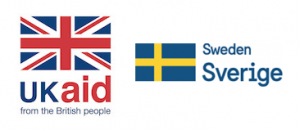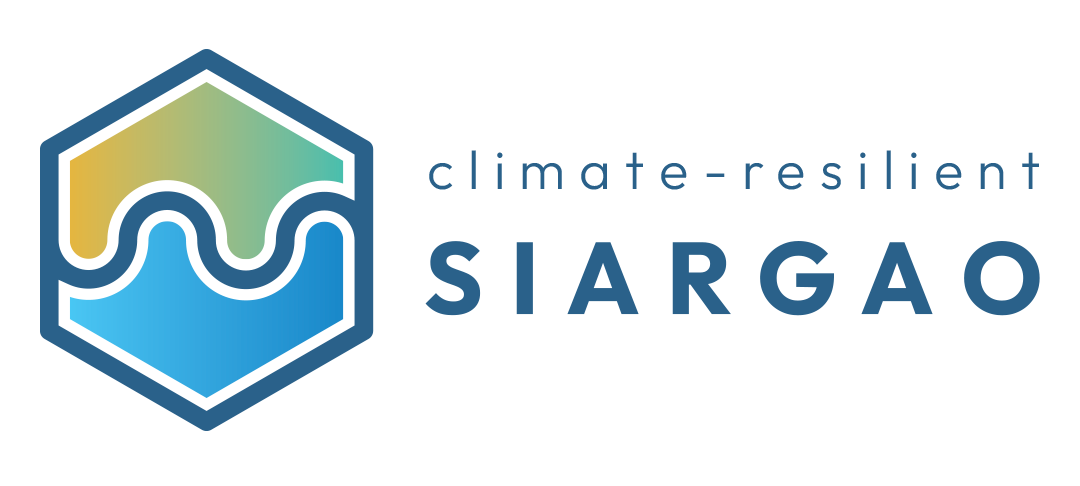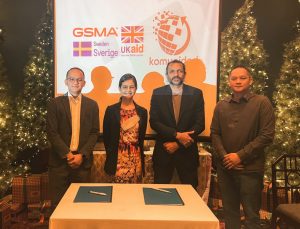
10 December 2022: Komunidad recieves a 15 to 18 month international grant through GSMA Innovation Fund
Philippines’ Komunidad is one of the 11 start-ups across the globe that has been chosen to receive financial support from the GSMA Innovation Fund for Climate Resilience and Adaptation to develop digital solutions in empowering vulnerable communities against climate change.
Komunidad, a climate data & analytics software company, is set to receive an equity-free grant to scale their innovation over a 15 to 18 month period through the GSMA fund.
The financial support is expected to help Komunidad upgrade Philippine communities’ capacity to respond to disasters through a Typhon Early Warning System and weather analytics. The platform is designed to help local government units plan and prepare for hazards more efficiently and accurately.
With the funding, Komunidad hopes to empower LGUs and communities in Siargao Island which were badly hit by Super Typhoon Odette (international name: Rai) in December 2021, a destructive typhoon that affected more than 170,000 Filipinos and wrought an estimated damage of P20 billion.
Super Typhoon Odette first made landfall on the island-province of Siargao as it barreled through the rest of Visayas. The typhoon dumped heavy rains and brought strong winds that flattened towns along its path, leaving towns — which were still grappling with the pandemic — without electricity, communications and severe flooding.
A multi-hazard impact based monitoring and early warning system
Komunidad aims to “develop a multi-hazard impact based monitoring and early warning system,” to help climate shock-vulnerable Siargao to strengthen its communities’ resilience. The company hopes to integrate into Siargao’s disaster preparedness protocols a data-driven approach in environmental intelligence, early warning systems and mobile dissemination to protect its most vulnerable communities. “While we have existing Climate Resilience tools, there will be customizations to adapt to the risk context in the Siargao communities. There will be high focus on ground activities such as capacity building, education training, and onboarding using onsite and online approaches to guide user adoption,” it said in a project brief for GSMA. The project with GSMA will be until April 2024.
11 startups across the globe
Announced during the COP26 in Glasgow in November 2022, the GSMA fund is seen to “help accelerate the testing, adoption and scalability of digital innovations that enable the world’s most vulnerable populations to adapt, anticipate and absorb the negative impacts of climate change.” The initiative is currently funded by UK Foreign, Commonwealth and Development Office (FCDO) and the Swedish International Development Cooperation Agency (SIDA), with support from the global organization of GSMA and its members. Start-ups, small and medium enterprises and social enterprises from climate-vulnerable regions were invited to submit their application. At the closing, the GSMA received 524 applications from 70 countries. Others that bagged the financial support are Aquarech in Kenya, Bakhabar Kissan in Pakistan, BENAA in Egypt, CoAmana, Crop2Cash and Hello Tractor in Nigeria, GeoKrishi in Nepal, J-Palm in Liberia, Lersha in Ethiopia, and Simusolar in Tanzania.
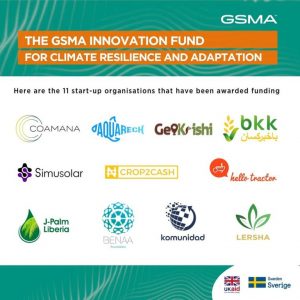
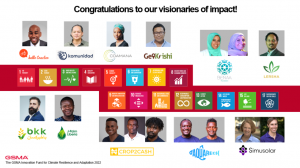
THIS INITIATIVE IS CURRENTLY FUNDED BY THE UK FOREIGN, COMMONWEALTH & DEVELOPMENT OFFICE (FCDO) AND THE SWEDISH INTERNATIONAL DEVELOPMENT COOPERATION AGENCY (SIDA), AND IS SUPPORTED BY THE GSMA AND ITS MEMBERS.
